News
Nestlé implements Nutri-Score system in Southern Europe
21 Jun 2020Nestlé has extended the use of the French-based Nutri-Score system to its products sold in Spain and Portugal. With this initial rollout, the scoring system will be printed on breakfast cereals Fitness Original, Nesquik Alphabet and Chocapic Bio as well as Garden Gourmet plant-based food.
In Spain and Portugal the number of products using this labeling system will continue to expand to incorporate the entirety of the Nestlé portfolio over the course of two years. Additionally, Cereal Partners Worldwide, the international breakfast venture between Nestlé and General Mills, will also implement Nutri-Score on its product packaging in the same countries.

Nutri-Score is now on Nestlé products in eight countries: Austria, Belgium, France, Germany, Luxembourg, Portugal, Spain and Switzerland. The Swiss CPG giant has publicly supported the labeling system and was part of a coalition that issued a call in April for Nutri-Score to become the standard across the European Union. Nutri-Score is currently only applied on a voluntary basis.
This color-coded system, which debuted in France in 2017, is gaining popularity in continental Europe. Using a bar featuring a green to red color gradient, it gives a score ranging from A (healthier choices) to E (less healthy choices). Studies have indicated that this front-of-pack labeling scheme has been successful in helping consumers select healthier choices at a glance.
However, there is still some resistance to this approach, and the European Commission did not endorse this scheme in its recently-released Farm to Fork strategy. Instead, the Commission noted that it will propose a harmonized label solution by the end of 2022.
Although Germany is on the list of countries where Nestlé has implemented its Nutri-Score system, the German Sugar Industry Association spoke out against the method saying that the algorithm used to evaluate a product’s score could mislead consumers. Similarly, the Italian government said that the labeling system singles out traditional Italian products such as Parmigiano Reggiano and extra virgin olive oil as unhealthy due to their fat and calorie content.
Despite this criticism, Nestlé remains committed to implementing this system. With the introduction of the Spanish and Portuguese markets into its labeling scheme, the company now has over 7,500 products across Europe using this visual system. Likely the march toward Nestlé Nutri-Score standardization will continue. “Nutri-Score works with consumers in Europe and it has the potential to become the EU-wide system," said Marco Settembri, Nestlé CEO for Zone Europe, Middle East and North Africa said in a statement.
Related news
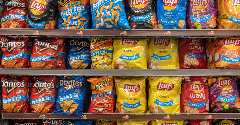
PepsiCo formulates ‘naked’ Cheetos and Doritos products
31 Dec 2025
US food giant PepsiCo has launched its Simply NKD range, a move it says reimagines its popular products with new formulations free from artificial flavours, dyes, and colours.
Read more
Debate over ban on ‘meaty’ names for plant-based products reaches stalemate
26 Dec 2025
The debate over a ban on plant-based products using “meaty” terms has reached a stalemate, leaving manufacturers in limbo and still facing overhauls to their marketing and packaging.
Read more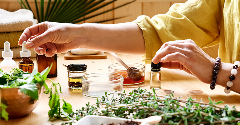
Ingredient transparency key to success in European natural health market
12 Dec 2025
Europe’s $40.7 billion supplements market is growing fast, fuelled by demand for products that support healthy ageing, mental wellbeing, and preventive health, say experts.
Read more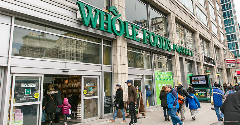
Whole Foods Market forecasts fibre frenzy for 2026
11 Dec 2025
Whole Foods Market has released its top 2026 trends, predicting that a fibre frenzy will take place next year as health-conscious consumers seek out nutritious, filling options.
Read more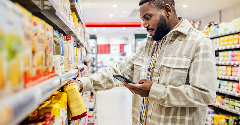
Which sustainability-related labels are consumers willing to pay a premium for?
10 Dec 2025
Products with animal welfare and geographic origin labels elicit a higher willingness to pay a premium than those with carbon-related labels, research suggests.
Read more
Sorghum emerges as better-for-you hero ingredient
9 Dec 2025
With the launch of Novak Djokovic’s sorghum-based brand, the grain’s popularity in the better-for-you snacking sphere is on the rise, thanks to its nutritional and sensory properties.
Read more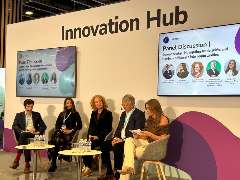
Turning global trade challenges into opportunities
4 Dec 2025
While our food innovation ecosystem is in a healthy place, certain barriers persist. A panel of experts at Fi Europe shared their ideas and strategies for overcoming these, to fully unleash Europe’s potential.
Read more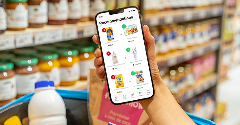
Yuka’s food scanning app helps consumers make healthier choices
2 Dec 2025
Global food scanning app Yuka helps consumers understand the content of their shopping baskets and shapes producers’ reformulation plans.
Read more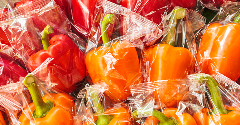
Plastic packaging toxicity a ‘ticking timebomb’ for FMCG companies
1 Dec 2025
Studies on the toxicity of plastic have spiked in the past decade – and the evidence points to a “ticking timebomb” for manufacturers and consumers alike, an analysis suggests.
Read more
Non-UPF Program extends certification scheme to entire food industry
30 Nov 2025
The Non-UPF Program has extended its certification scheme to the wider food sector, championing a move towards healthier consumption habits.
Read more